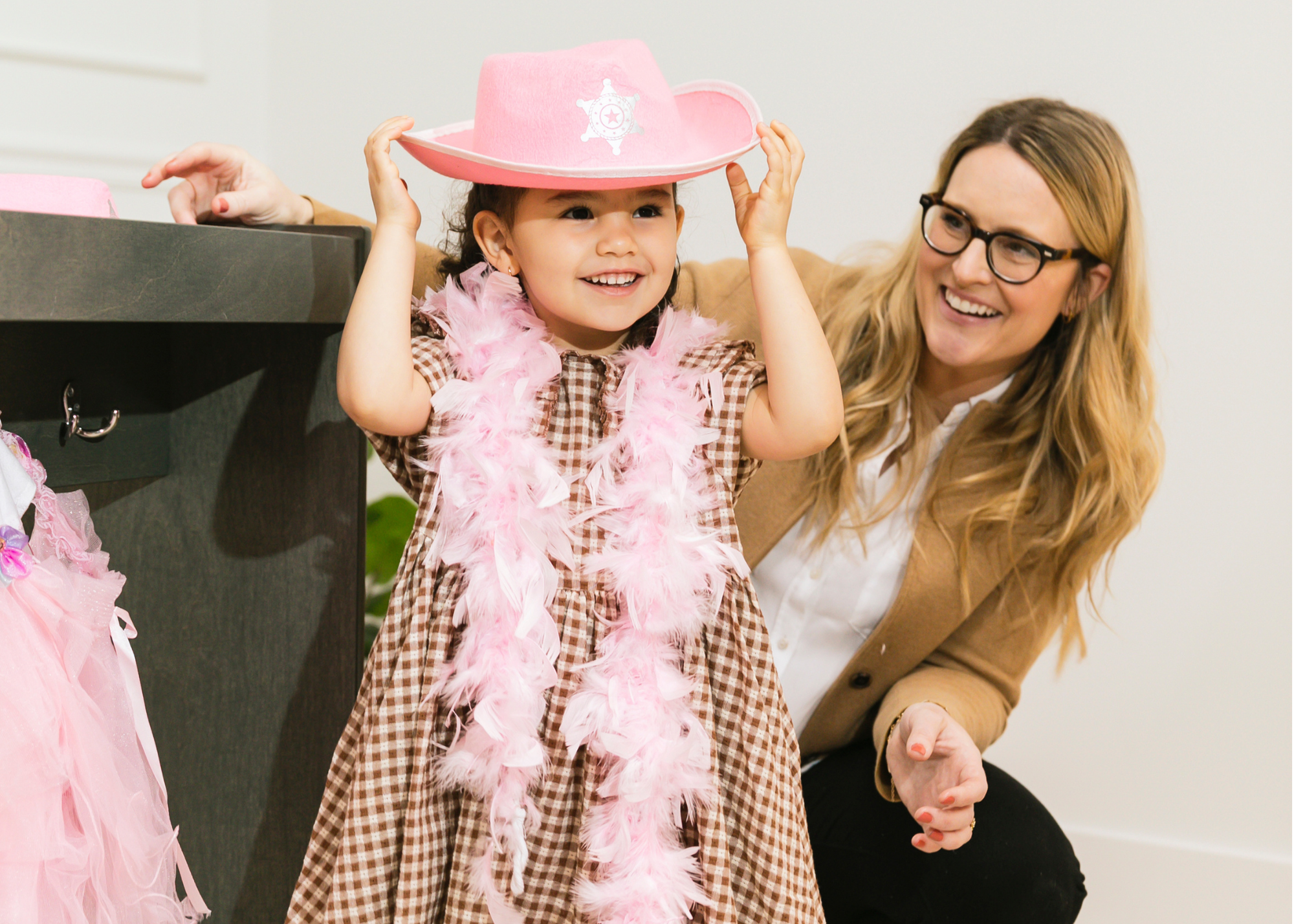Halloween brings spooky decorations, fun costumes, and a golden opportunity for kids to immerse themselves in pretend play. October’s festivities inspire creativity, imagination, and learning in the most fun ways. When kids dress up, they are also building skills that support early childhood development.
Dressing up allows children to express themselves and explore different identities, helping them make sense of the world and discover new possibilities. Children can use imaginative play to practice language, social interactions, and creativity.

Halloween time inspires the imagination. When dreaming about a costume ideas or inventing storylines during play, dress up lets kids use their creativity muscles. Open ended imaginative play helps kids learn to problem solve and exercise mental flexibility.
Executive functioning refers to the skills that help a child plan, focus, and successfully complete a task. Pretend play is a powerful way to support these skills. When kids take on the role of a different character, they see from another’s perspective, building empathy and emotional intelligence. Through role-play they can explore different emotions, rehearse situations, and take on the traits of the character: like the bravery of a superhero or skill of a pilot.
Costume play is a rich source of language practice. Kids love to talk about their favorite characters and how they would act in different situations. Conversation during play helps expand vocabulary, storytelling abilities, and confidence in self-expression. It also encourages growth as children invent scenarios and expand their dialogue. Interactive role play develops active listening and conversational skills.
Dress up fosters self-care skills and independence. Managing buttons, zippers, and costume accessories gives children fine motor practice and strengthens personal care skills. These tasks often feel more engaging and less frustrating if they are attempted during the excitement of pretend play.
To encourage dress up play at home or in the classroom, create a dedicated costume area. Use a basket, trunk, or hanging station to display a variety of outfits and accessories. After Halloween, ask families to donate gently used items, or partner with other parents or educators to trade costumes to keep the collection fresh. Rotate costumes regularly and add in items that align with interests or current curriculum. Group dress up play allows collaboration, sharing, negotiating, and teamwork.

Dress up is a magical way for children to learn, grow, and connect. Enjoy the meaningful developmental benefits that come hand in hand with the spookiest time of the year! Children can become their favorite characters and practice essential cognitive, social, and emotional skills.

